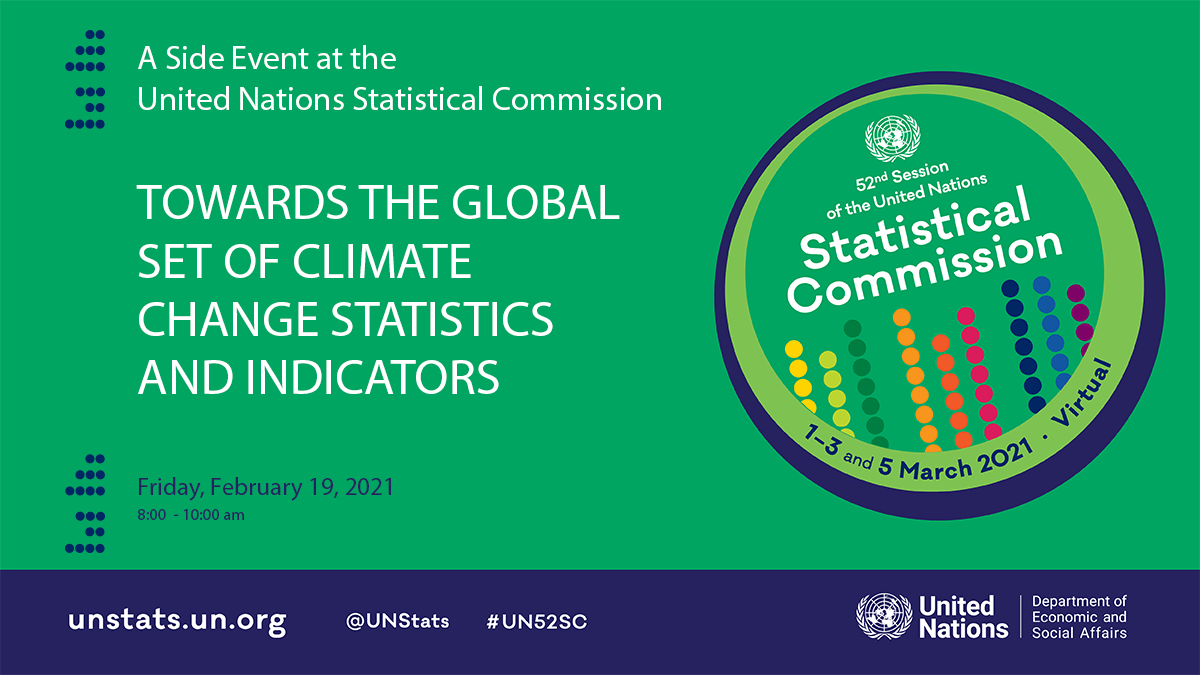United Nations Statistical Commission
Overview 52nd Session (2021) Side events

Presentations
The global COVID-19 pandemic continues to impact us all, as does climate change, and as the United Nations Secretary General, on Earth Day last year mentioned that "the climate emergency, just like the COVID19 pandemic, does not respect national boundaries". It is therefore critical to accentuate the importance of the need for timely, reliable and official statistics, both to monitor the pandemic and climate change.
The Department of Economic and Social Affairs (DESA) is committed to translating the Secretary-General's messages into policy actions, ranging from all aspects of sustainable development including climate change, forests, oceans and vulnerable populations, and supported by high-quality data. In the area of climate change, the lack of data and statistics for measuring the drivers, impacts, vulnerability, adaptation and mitigation actions impedes sound policy making. Some data and statistics to monitor certain aspects of climate change have been presented in Goal 13 of the SDGs, but much more is needed to complete the entire spectrum.
The Statistics Division of DESA has accelerated its efforts in the development of a Global Set of Climate Change Statistics and Indicators, that was mandated by the Statistical Commission in 2016 and 2018, and is working in very close collaboration with the United Nations Framework Convention on Climate Change (UNFCCC). This Global Set is structured according to the Framework for the Development of Environment Statistics (FDES) and assessments by the Intergovernmental Panel on Climate Change (IPCC). It is expected to be approved by the Statistical Commission in 2022 and will benefit all countries and the international climate change reporting process under the Enhanced Transparency Framework of the Paris Agreement.
The Side Event will provide updates on the development of the Global Set and statistical reflections on the work of UNFCCC and IPCC. National experiences on the contributions to and the application of the Global Set will be shared by Suriname and Tanzania.